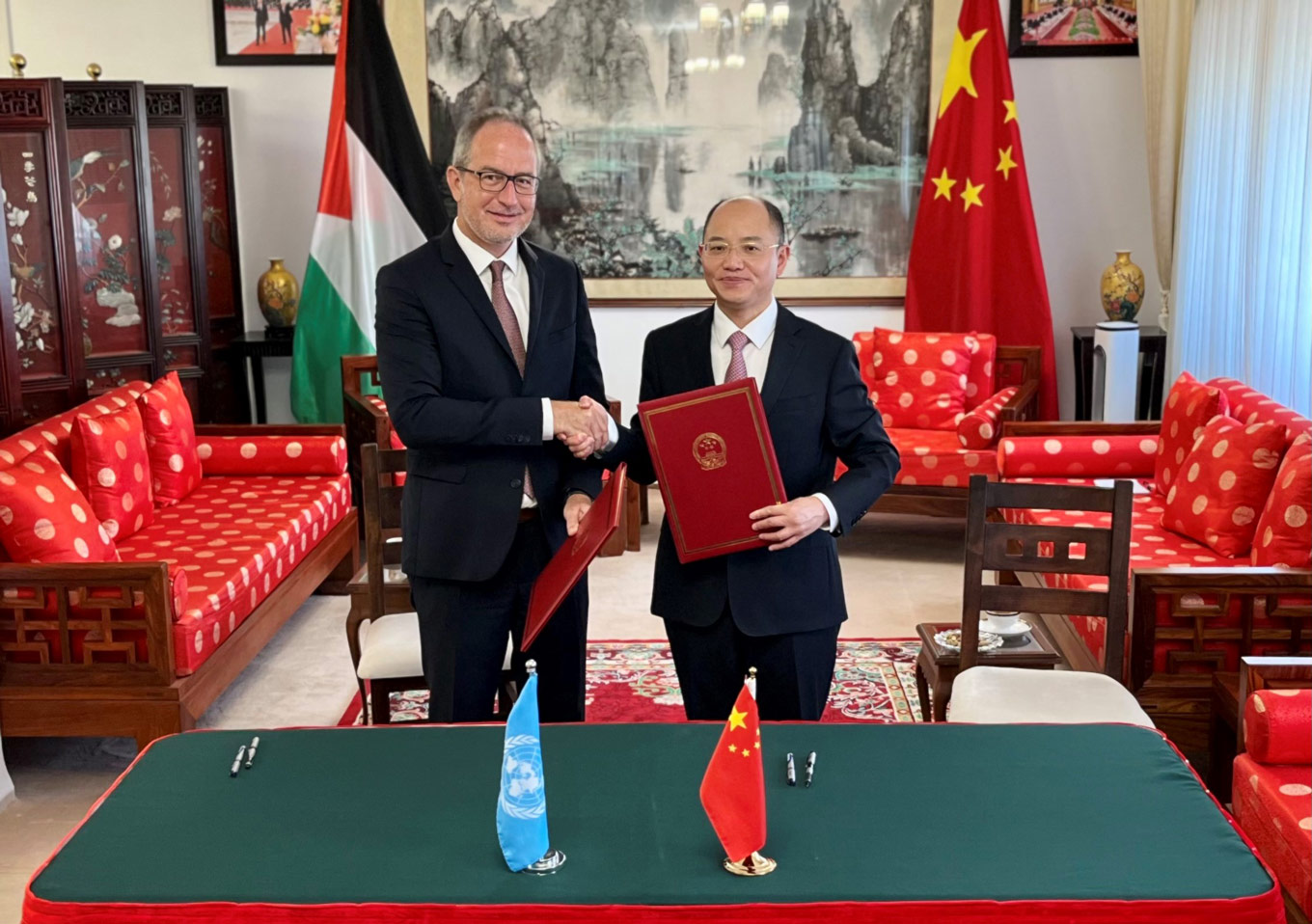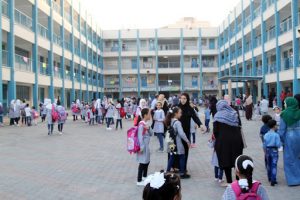China has donated one million U.S. dollars in support of the Agency’s education program for 5,300 Palestine Refugee children in five UNRWA schools across Gaza Strip.
Zeng Jixin, head of the Office of the People’s Republic of China to the State of Palestine, said that China fully recognises and highly commends the work of UNRWA and has been providing assistance within its capacity to support UNRWA in fulfilling its mandates.
He said China is ready to work with the international community to make positive contributions to achieving a comprehensive and lasting solution to the Palestinian issues as well as realising lasting peace, security, and prosperity in the Middle East.
Established in 1949, UNRWA is mandated to provide humanitarian aid to Palestinian refugees. she was a pioneer in the field of education in emergencies, as she showed resilience and innovation in the face of conflict, occupation, siege, displacement, and, more recently, the global pandemic, and the UNRWA educational program has made great progress in ensuring that all students, regardless of gender, receive abilities, disabilities, socioeconomic status, health and psychosocial needs, have an equal opportunity to learn and support them to reach their full potential.
Since making its first contribution to UNRWA nearly six decades ago (1964), the People’s Republic of China has consistently provided financial and political support to the United Nations Relief and Works Agency for Palestine Refugees in the Near East (UNRWA).
In recognition of this important partnership, UNRWA is keen to further strengthen cooperation with China to continue providing much-needed humanitarian and human development assistance to Palestine Refugees.
Moreover, Prime Minister Mohammad Shtayyeh officially inaugurated today the new school year 2023-2024 under the theme “Protecting Education.” The opening ceremony took place at Deir Dibwan Industrial Secondary School, to the northeast of Ramallah.
The theme “Protecting Education” reflects the challenges faced by Palestinian schools and students, including issues related to access to education, school infrastructure, and the impact of the political situation on the learning process.
Z.S




